Peking University, Dec. 31, 2010: More than 90 years later, Peking University resumes its academic institute for traditional Chinese painting.
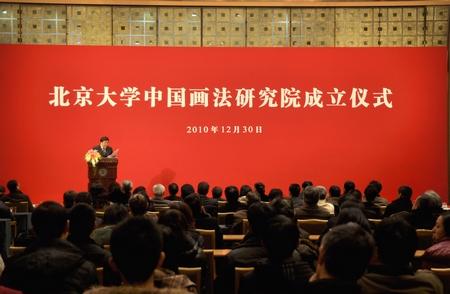
The inauguration ceremony for PKU Academy of Chinese Painting Research was held on Dec. 30 at PKU Yingjie Overseas Exchange Center. Prof. Fan Zeng, a contemporary master of traditional Chinese painting, was appointed director of the academy.
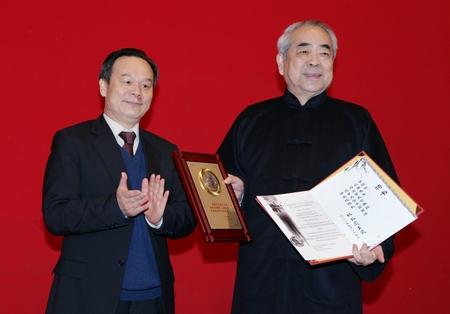
Prof. Fan Zeng appointed Director of PKU Academy of Chinese Painting Research
In his inauguration speech, Prof. Fan reviewed the history of the association for Chinese painting research at PKU, and spoke highly of the special role of PKU in the social development of modern China. "Peking University provides an important platform for the study and development of Chinese traditional art, with which drawing art can absorb the quintessence of Chinese history, culture and philosophy and go toward the whole world," said Prof. Fan.
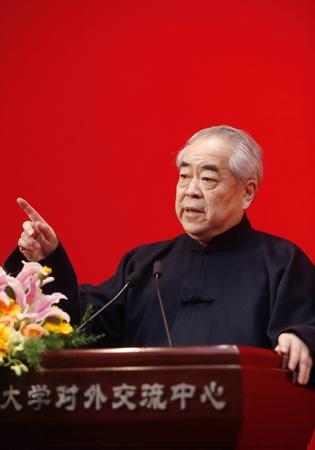
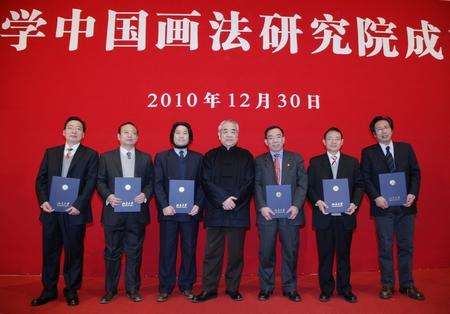
Prof. Fan Zeng and newly-appointed adjunct professors
At the ceremony, Director Fan Zeng awarded the appointment letters to adjunct professors. Student representative Meng Hao, president of PKU Association for Brush Art, said that he would devote himself to the study of painting and calligraphy and carrying forward Chinese traditional culture. Famous host Zhao Zhongxiang and Director of China Sculpture Institute Wu Weishan gave speeches respectively, both of whom expressed congratulations on the founding of the academy.
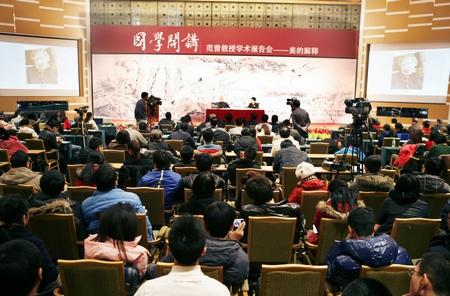
Prof. Fan Zeng on "Explanation of Beauty"
Some 200 teachers and students attended the ceremony. In the afternoon, Prof. Fan Zeng gave an academic report with the theme of "Explanation of Beauty."
About PKU Research Association for Chinese Painting (1918-23)
The Imperial University of Peking founded in 1898 was renamed National Peking University in 1912. Cai Yuanpei, President of PKU from December 1916, sponsored and organized the PKU Association for Chinese Painting Research on Feb. 22, 1918. The association may be the first large art group in new type to study drawing art and held a number of exhibitions. In January 1920, the society had two kinds of classes to teach Chinese and Western painting, which attracted more than 30 international students. From then on, the society changed its name to Research Institute of Chinese Painting, aiming at studying the drawing art, training talents, and promoting aesthetic education. The institute came to a stop in 1923 because of the resignation of President Cai.
Translated by: Chen Meng and Lim Yee Chuin
Edited by: Jacques
Source: PKU News (Chinese)
Related News
Photos
More>>history
- NTU Day Special Largest-ever Delegation of Taiwan University to Visit PKU
- PKU Alumni Meeting Held in Taiwan for the First Time
- Award for Contribution to Nation's Scientific and Technological Progress
- Teaching Demo Competition for Young Teachers
- Cao Qiyong Donates to Establish PKU Sino-Japanese Youth Exchange Center





